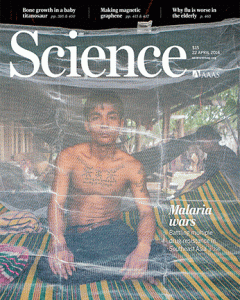 The Journal of Biological Chemistry (JBC) has retracted two 2003 studies after concluding that figures in the papers had been duplicated, and portions of some figures in one paper “did not accurately represent the results of the experimental conditions.”
The Journal of Biological Chemistry (JBC) has retracted two 2003 studies after concluding that figures in the papers had been duplicated, and portions of some figures in one paper “did not accurately represent the results of the experimental conditions.”
The two newly retracted papers have the same last author — Therese Kinsella, a biochemist at the University College Dublin (UCD), who told us the data have been upheld by subsequent research, but that she supports the retractions, which are now part of a UCD investigation.
The retractions will bring up some familiar names: The first author on one of the papers is Sinéad Miggin from Maynooth University in the Republic of Ireland; in 2014, Miggin logged two retractions in the JBC, which triggered an investigation into co-author Aisha Qasim Butt. Last year, Maynooth University revoked Butt’s PhD after she admitted to “falsification and misrepresentation” of data in both studies as well as her PhD thesis. At the time, Miggin and two other researchers were fully exonerated by Maynooth University from “any wrongdoing.”
Butt, however, is not an author of either of the newly retracted papers. Although Butt’s LinkedIn page still lists her as a postdoctoral researcher at UCD, a spokesperson from the institution told us she is no longer based there.
We don’t often see such old papers retracted. Kaoru Sakabe, Manager of Publishing Issues at the American Society for Biochemistry and Molecular Biology, which publishes JBC, told us how this decision came about: Continue reading Researcher in Ireland loses two 13-year old studies
 A brain research journal has retracted a 2016 study about epilepsy after an institutional investigation determined that some of the data were taken from another published paper.
A brain research journal has retracted a 2016 study about epilepsy after an institutional investigation determined that some of the data were taken from another published paper. 

 An expert group at Uppsala University has recommended not proceeding with a full investigation into allegations of misconduct in a high-profile Science paper showing how human pollution may be harming fish.
An expert group at Uppsala University has recommended not proceeding with a full investigation into allegations of misconduct in a high-profile Science paper showing how human pollution may be harming fish.

 A Copenhagen court has
A Copenhagen court has  In a rare move, the University of Colorado has revoked the PhD of a former student in a pharmaceutical research lab, following an investigation that raised concerns about the integrity of his work.
In a rare move, the University of Colorado has revoked the PhD of a former student in a pharmaceutical research lab, following an investigation that raised concerns about the integrity of his work.

